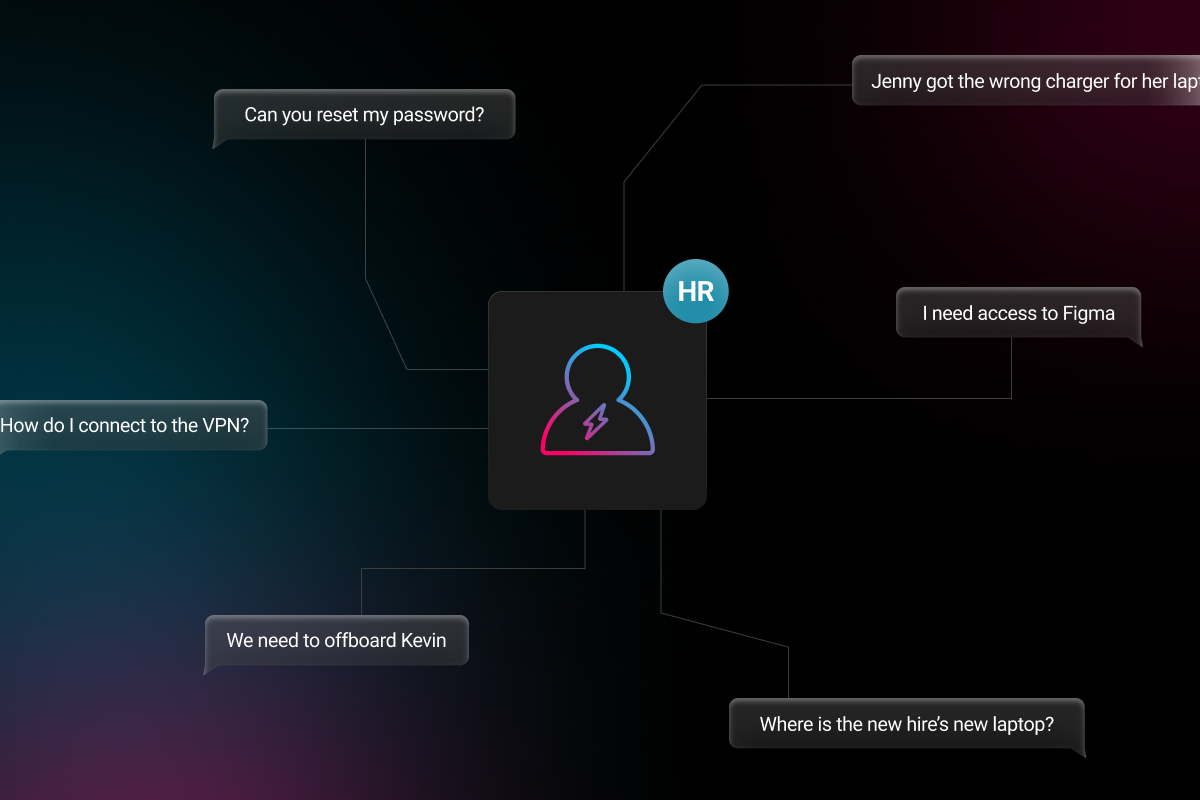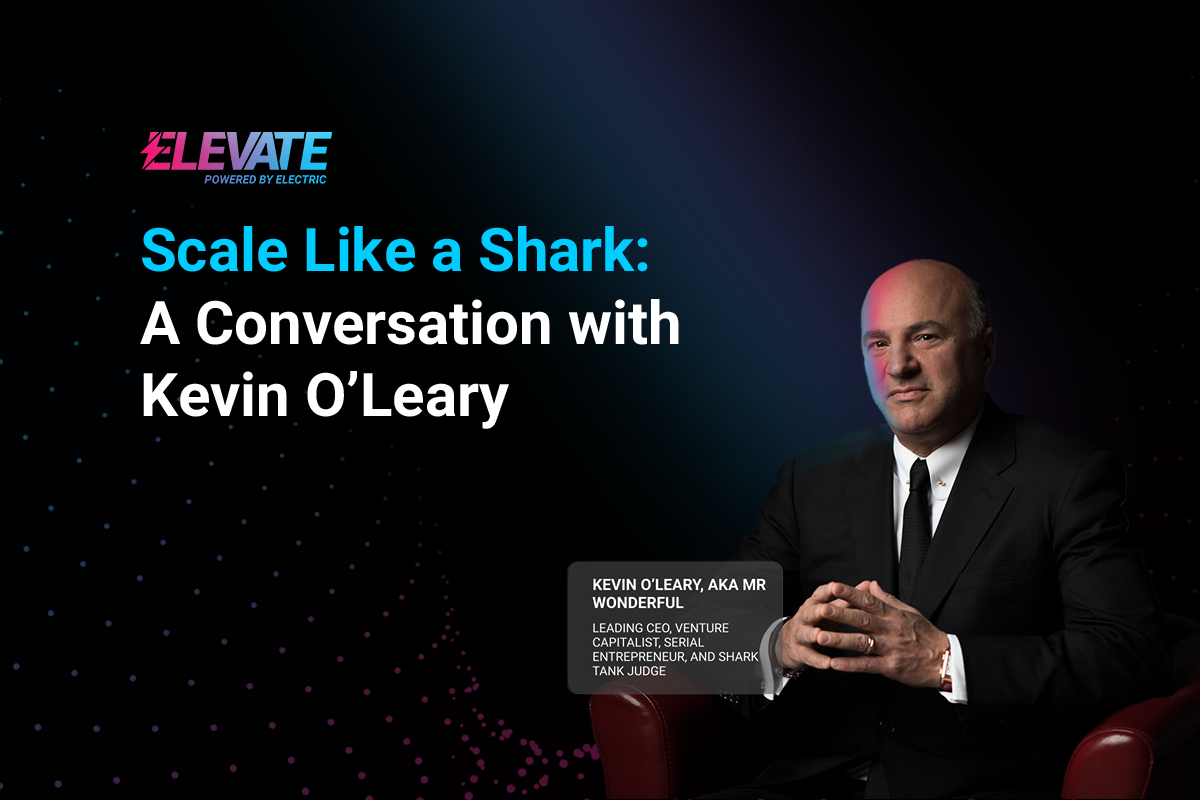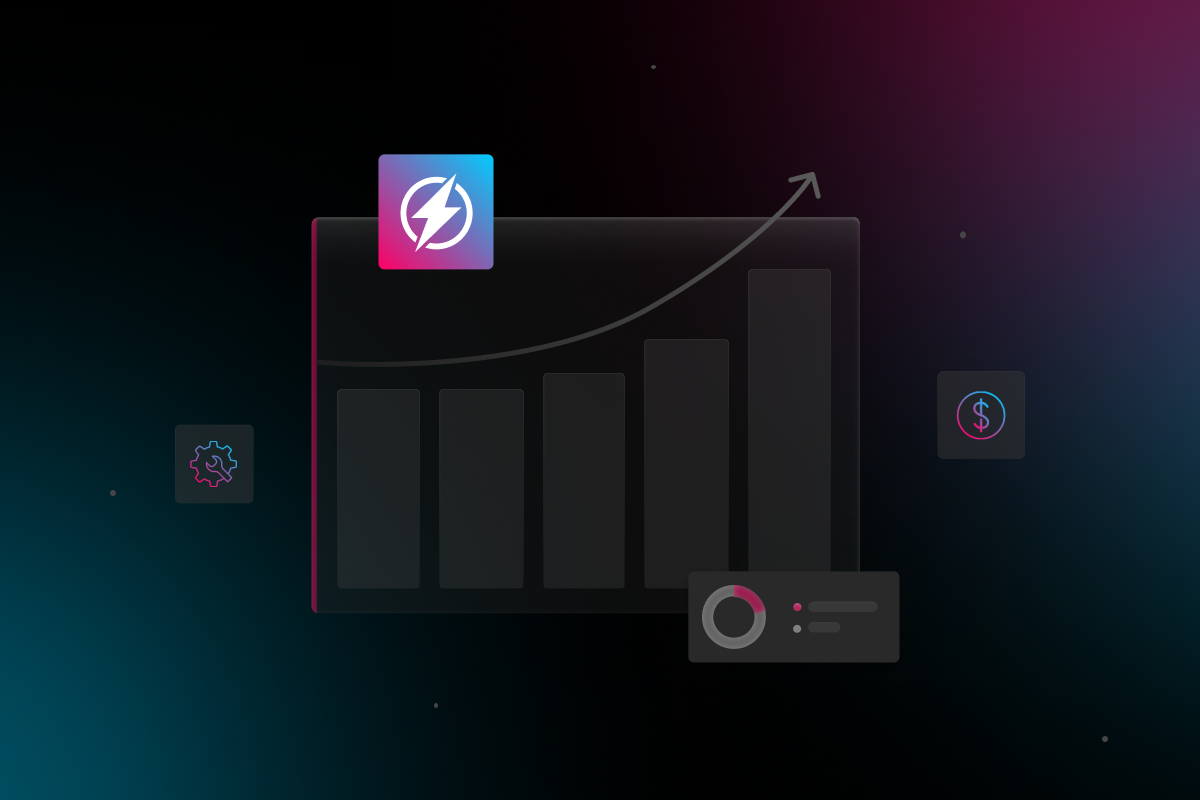
“IT is a competitive weapon… Technology saved the economy. It’s the most important mandate you have in a company.”
Kevin O’Leary, aka Mr. Wonderful, is a Shark Tank investor, best-selling author, entrepreneur, and venture capitalist. As one of the keynote speakers at Elevate 2022, he shared insightful advice on how to scale startups in a time of digital transformation and economic volatility.
Joined by Electric CEO Ryan Denehy, Kevin reflected on the changes he has seen in his portfolio of companies over the past two years.
“In March of 2020, for the first time in my life, every single company went into negative cash flow. It’s easy to talk about it today, but at that point in time, that was an extraordinary outcome that I’d never seen in my life.”
Following an immense digital pivot, a pandemic, and the onset of economic uncertainty, the way we do business has changed irreversibly. Is it possible to predict what’s next?
“I can’t forecast the economy next year, but I do know that this is an unusual recession. I can’t hire anybody, we’re at full employment. I see no reduction in sales on the tear sheets each week. I’m waiting for the slow down, I have not seen it yet.”
Read on to find out what else “Mr. Wonderful” had to share at Elevate to help business leaders prepare for the year ahead.
In the past two years, what are the biggest changes you’ve seen in the businesses you work with, and do you think those changes are here to stay?
The biggest pivot Kevin has witnessed is the accelerated shift to direct-to-consumer models. “Large and small companies alike have tried to build models where their sales are 50% direct-to-consumer. When you are able to do that, you can forecast preference, build inventory specific to preference, and reduce your capital costs. If you know what your customers want with real-time data, you don’t waste inventory. That’s the major play that’s going on in direct-to-consumer right now, using technology to build and provide services that are completely in sync with demand.”
In this scenario, smaller more agile businesses potentially have a competitive advantage over their larger counterparts. “During the last two years, the cost of AI, data gathering, and cloud services has come down as much as 66%. Prior to the pandemic, if you wanted data on your customers, the cost of acquiring it was really expensive… Today, for a few thousand dollars a month, you can get the same data that the big guys have. It’s really leveling the playing field.”
“Data is the new oil. It’s more valuable than anything else.”
With all of this data to hand, Kevin says the biggest mistake he has seen companies make is not understanding their average customer acquisition cost. “The companies that failed during the pandemic were the ones that never focused on customer acquisition cost and technically went bankrupt advertising. They were losing money every time they acquired a customer.”
What advice are you giving to your companies to future-proof their organizations as we head into 2023?
Kevin highlighted the importance of social media in today’s business environment, and encourages a unique, strategic approach on each platform.
“If you don’t have a sense for how to do that, you’ve got to find talent who can help you do it. Because if you’re not doing it, your competitors have a huge advantage over you… You want people who understand that communicating with customers, maintaining relationships, and supporting them in the after market is essentially how you maintain a brand.”
In the context of the current economy, O’Leary believes that the effects of the recession won’t be felt until the end of Q1 2023, and his businesses are building holiday inventory accordingly.
“Our biggest concern right now is trying to figure out when the consumer will slow down… Every company in America is trying to decide, Do I pull back? Do I do less? In our case, where we see a strong consumer, we are going to continue servicing them and then pull our horns in, maybe in the middle of Q1.”
What advice would you give to entrepreneurs who are preparing for their next big ambitious goal, but are naturally fearful of failing?
Failure occurs in different forms, says Kevin. There’s catastrophic failure, or there’s failure that occurs when a new initiative doesn’t produce the expected returns.
“In both scenarios, the key is to learn from the mistake. It sounds so obvious, but many people don’t. I would rather invest in an entrepreneur who has felt the sting of failure multiple times. It’s extremely motivating. Failure is the development of experience. Great managers, entrepreneurs, and business leaders learn from their failures.”
“The seasoned entrepreneur, the one that has failed multiple times, always outperforms the rookie.”
For businesses that want to grow and develop their people, what advice do you have?
After seven years of operations, Kevin noticed that 75% of the returns in his portfolio were coming from companies run by women.
“Here’s what the data told us: in the case of companies run by women, their average growth rate targets for the first five years of operations were <15%, and they hit their targets 95% of the time. In the case of companies run by men, their average growth rate targets for the first five years were 30% – more than double – but they only hit those targets 65% of the time.”
“What we found out was, when you hit your goals consistently, the culture changes in a company. Even though your target is much less, your culture is very sticky… The turnover at companies that only hit their goals 65% of the time was about 35%. That’s really high. In the companies that were hitting their goals 95% of the time, i.e. the companies run by women, the turnover was less than 2.5%. That’s what manifested better outcomes.”
“After seeing this data, we told all of our CEOs to reduce target growth rates to the point that you can hit them at least 90% of the time. Our turnover dropped dramatically, and our free cash flow went up 2.5%.”
“There’s a lesson in that for everybody. Don’t set goals you can’t achieve, it does cultural damage over time.”
Is there a memorable IT incident where technology has either failed you, or helped you accelerate at a certain moment?
“IT is a competitive weapon,” says Kevin. “If your competitor has a better CRM system, better technology, less latency, more training on digital platforms, they have a wicked competitive advantage. My new mantra for all of our IT is you get the best, you pay for the seats, you maintain the contracts, there is no flexibility on that. You have to have state-of-the-art everything, because I can’t have a situation where a competitor has something better.”
“Technology saved the economy. It’s the most important mandate you have in a company. You wouldn’t have a business without technology during the last 30 months. We spend on every tech we can get. We’re constantly assessing and trying to decide, how can we get an advantage? What can we do that the competitor has not done yet? It’s all tech, that’s the key.”
Scale Your Business with Electric
Electric is reinventing how businesses manage their IT. Providing real-time IT support to 50,000 users and centralized IT management to over 900 customers, Electric offers companies a 50% reduction in IT spend and standardized security across devices, apps, and networks, whether you’re on-site or remote. Get in touch to learn more.
Want to hear more from our Elevate speakers? Check out the recordings on our YouTube channel.



